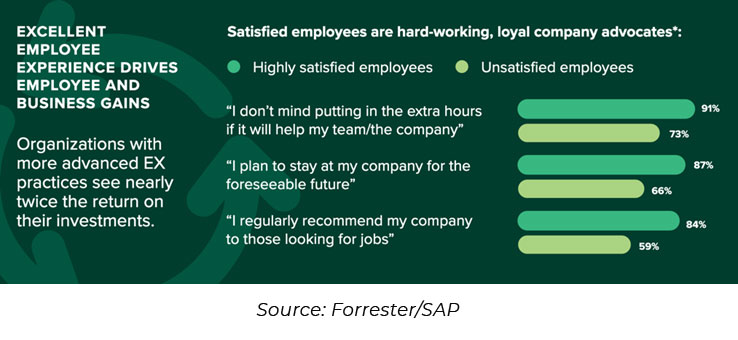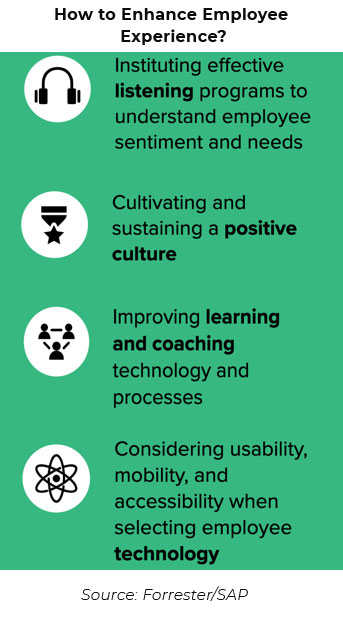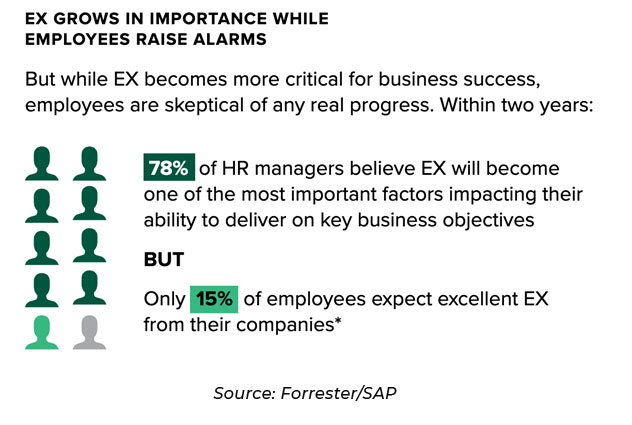Employee Experience Becomes a Top Priority for HR Leaders – Forrester Study
Organizations deprioritize employee needs, and HR and employees are fundamentally misaligned on what drives good EX. Why? It is because only 9% of HR managers say employee needs are their #1 priority when setting EX strategy.
But not anymore, given the current landscape, HR organizations need to recalibrate their approaches and ink a modern HR strategy that makes for building memorable employee experiences.
Given this backdrop, it is not surprising to note that the number of decision-makers in HR who say EX is the most important aspect of their HR strategy has nearly tripled over the last two years.
The results were published in a new study from Forrester Consulting LLC commissioned by SAP , Qualtrics, an SAP company, and EY. Likewise, budget for EX has almost doubled over the same time period, from 6% to 11% and is expected to increase to 16% within two years.

Employee experience is at an inflection point as organizations look to support an increasingly remote workforce while maintaining culture, flexibility and productivity. Still, most EX initiatives remain relatively immature, according to the “Close the Employee Experience Gap” study, which surveyed 900 HR decision-makers and 900 full-time employees. Organizational silos, lack of executive support, inconsistent measurement, dispersed data and misalignments between HR departments and employees leave room for improvement in creating EX initiatives that drive lasting change.
For example, only 24% of HR teams have an executive sponsor for their EX work, and 71% say it is a challenge to gather real-time information about employee experience. Only 17% of HR organizations say they track KPIs that reflect cultural strength. While 81% of employees believe creating and sustaining a positive culture is the most important aspect to creating good EX, only 58% of HR managers agreed. Furthermore, only 15% of employees expect excellent EX from their companies.

“Learning and training, diversity and inclusion and a culture that encourages people to bring their whole selves to the workplace are all part of the employee experience,” said Jill Popelka, president, SAP SuccessFactors. “Employee experience cannot be isolated to HR or solely focused on increasing productivity. It needs a holistic strategy driven by leadership and shaped by continuous feedback from employees.”

Despite existing challenges, the study confirmed that EX initiatives can drive immense benefits for the overall business. HR leaders said that EX initiatives have a positive impact on workforce agility (59%) and organizational agility (67%). Meanwhile, nearly 80% of employees said that EX initiatives improve their productivity and quality of work. This translates into increased revenue, according to the 77% of HR leaders who said that EX initiatives have increased revenue and the 61% who said they saw improved profitability.
Most Read
May 28, 2019
Driving Operational Excellence Through Design Thinking
February 11, 2020
The Art of Data Science
June 12, 2019
Financial Inclusion through Digital Diversification





